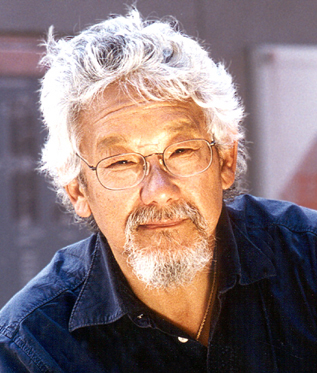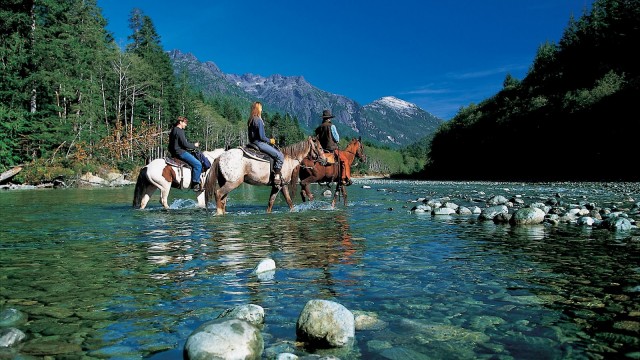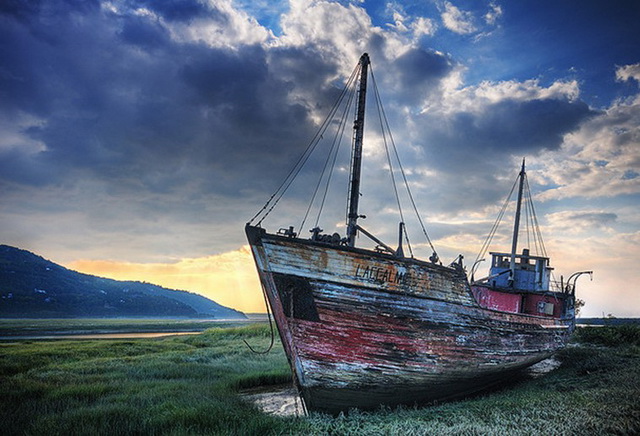Only a fool speaks of seeing the glass half full when there’s a crack in the bottom. Man is imperiling the human prospect to the same degree that he is destroying the balance and diversity of life on earth. A revolution in consciousness is urgently needed to change the disastrous course of humankind.
 The fact that many believe the revolution in consciousness is already happening, when darkness in human consciousness is growing exponentially, attests to the power of the human mind to delude itself.
The fact that many believe the revolution in consciousness is already happening, when darkness in human consciousness is growing exponentially, attests to the power of the human mind to delude itself.
Why is it so hard for people to acknowledge the fact? Is it because to really see what is happening means letting go of hope and control, which we think means feeling hopeless and out of control?
Bill Moyers recently interviewed David Suzuki, who was voted Canada’s most admired citizen. He’s the geneticist, environmental activist and host of the long-running and influential “The Nature of Things.”
Cutting right to the chase, Moyers said, “There was a time when your messages were heeded, and you helped win some very important battles. Now you’re fighting those same battles all over again. What does that tell us?”
Suzuki responded: “That was the shock to me. We celebrated great victories in the 1970’s and 80’s—for example, stopping clear-cutting of some forests, or drilling for oil off the coast of British Columbia, stopping big dams that were to be built in Brazil—and yet here we are, 30-35 years later fighting the same battles. This is the signal that we as environmentalists fundamentally failed; we failed to shift the perceptual lenses through which we see our place on the planet.”
That truth spoken, Suzuki precluded deeper questioning and insight by giving conventional wisdom: “Environmentalism is really about seeing our place in the world, in the way that humans have always known up until very very recently—that we’re part of nature and utterly dependent on the natural world for our well being and survival.”
However that only begs the question: How did man, who evolved as part of nature, come to operate in growing opposition to and destruction of nature? Though I’ve addressed this question in previous columns, the important thing is to see that people did not understand themselves during indigenous times any better than we understand ourselves now. Our ancestors were simply reminded every day of the reality of being “utterly dependent on the natural world for our well being and survival.”
The vast majority of people now live in cities with little contact with nature, much less direct dependence on the natural world. Indeed, for more and more people, there is a nearly complete disconnect with nature. In direct proportion, a globalizing inner crisis, a sense of meaninglessness of life and hopelessness about the human prospect, has become acute.
The “way out” is not simply “to show nature more respect,” as Suzuki says, but to bring about, perennially beginning within ourselves, a truly new consciousness, veritably a new human species.
Young children will see and respond to that radical change, not because they are ‘indigo children,’ and somehow intrinsically more gifted, brilliant and wise. That’s another version of the age-old hope that the next generation will come up to the mark, which is the continuation of the delay and irresponsibility of adults. Grown-ups have to first bring about a radical change within us, and begin to dispel the darkness of conditioning, which is inherently divisive and fragmentary.
I learned how non-verbally responsive to radical change young children can be when I traveled back to my native state of Michigan for my youngest sister’s wedding over twenty years ago. The youngest nephew at the time was the bright, mischievous two and half year-old son of my oldest sister. I had some days before the wedding, and enjoyably spent a good portion of the time bonding with Bret.
After the big wedding, my sister and her new husband were opening gifts in the adjoining living and dining  rooms of my parents’ house, which were filled with people. I was sitting at one end when Bret came up and asked, “What are you?”
rooms of my parents’ house, which were filled with people. I was sitting at one end when Bret came up and asked, “What are you?”
Thinking that he had simply confused his pronouns, I replied, ‘you know who I am Bret, I’m your uncle.’ He shook his head and walked away.
He returned a few minutes later with the same question, and asked more insistently, “What are you?” I said, ‘I don’t understand what you’re asking me Bret. What do you mean?’ Of course, since he was just two and half, he couldn’t explain any further. He walked away, clearly frustrated.
A few minutes later he charged toward me from across the room, and I knew I was in trouble. When he reached me, he yelled at the top of his little lungs: “WHAT ARE YOU?” The whole room of family and friends turned. But I didn’t care; I had to find out what this little guy was asking me. I held his gaze for perhaps half a minute, until there was the flash of insight.
I saw that in his developing mind and brain, everyone in the room belonged in one category of people. But I didn’t fit into that category, and since we had really hit it off, he naturally wanted to know what I was. The insight brought the right response, which was also its confirmation: ‘I’m a human being Bret, a human being.’
His eyes lit up like I’ve never seen a child’s eyes light up before or since. He threw his head back and laughed in delight, repeating over and over, “Being, Being.”
This story isn’t to hold myself up as some sort of prototype, but to point out that a transition can be made in ordinarily conditioned people, which young children can readily see. We can change from increasingly divisive and fragmenting creatures to imperfectly undivided beings. That is the adequate response to the ecological and spiritual crisis of humanity, the crisis of consciousness of man.
Martin LeFevre

